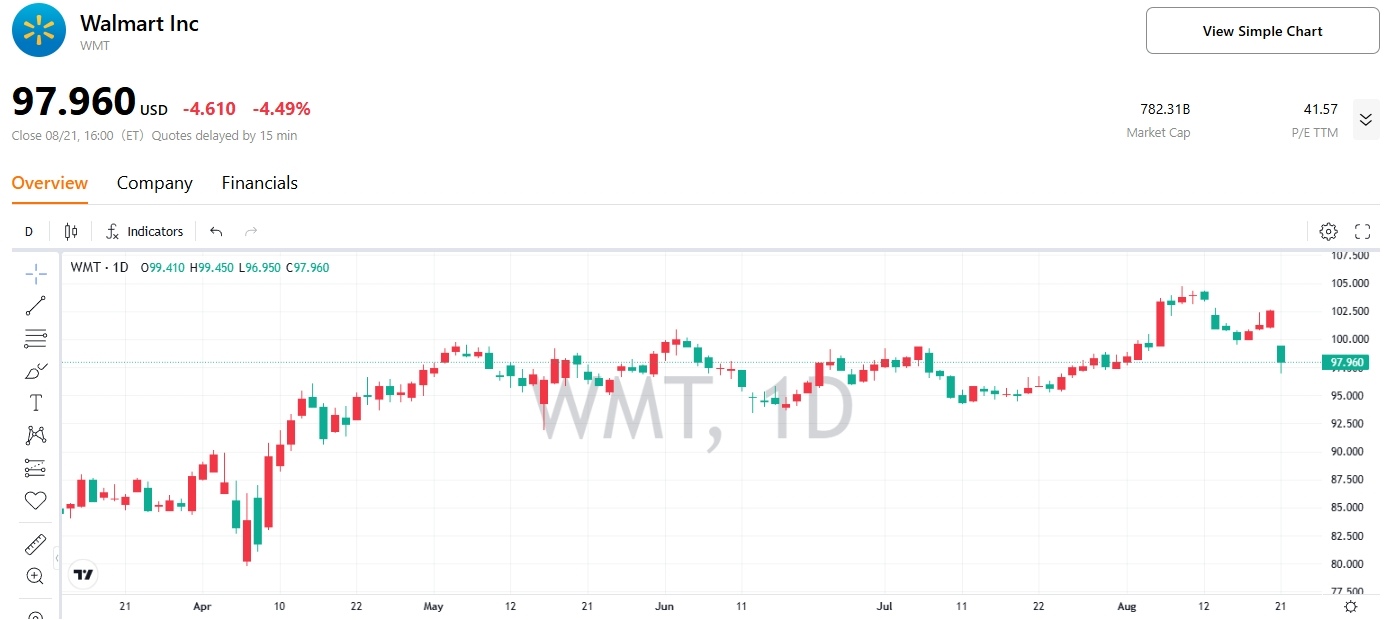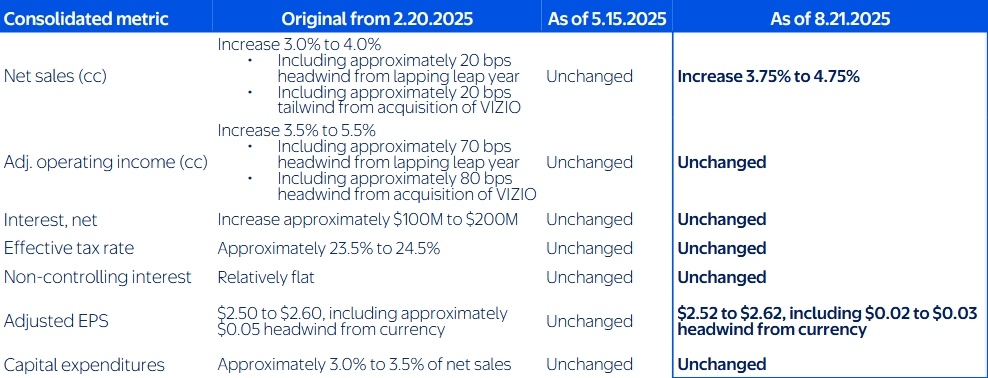Investors Overreact to Walmart Q2 Earnings? Former CEO and Morgan Stanley Defend the Long-Term Story
TradingKey - Despite the impact of tariffs, Walmart (WMT), the largest U.S. retailer, delivered a 4.8% year-over-year revenue growth in Q2 — exceeding expectations. However, its first profit miss in three years dragged down the stock. The former CEO said the market’s reaction is unfounded, and Morgan Stanley downplayed the short-term earnings noise, maintaining confidence in Walmart’s long-term narrative.
According to the Q2 earnings report released before the market open on Thursday, August 21, Walmart reported:
- Revenue: $177.4 billion, up 4.8% YoY, above the $176.16 billion consensus
- Adjusted EPS: $0.68, below the $0.74 consensus
This marks Walmart’s first earnings miss since May 2022. Investors expressed concerns over Walmart’s profitability amid ongoing tariff pressures, sending the stock down 4.49% to $97.96 — the worst performer on the Dow Jones Industrial Average that day.

Walmart Stock Price Chart, Source: TradingKey
In reality, the retail giant is not struggling due to tariffs — the profit shortfall had different causes. Walmart attributed the miss to higher insurance claims, legal expenses, and restructuring costs.
Walmart’s Chief Financial Officer, John David Rainey, said the cost impact from tariffs continues to rise, but the company is working to maintain its low-price strategy through accelerated imports and increased time-limited discounts.
Rainey added:
“Everyone is looking to see if there are any creaks in the armor or anything that’s happening with the consumer, but it’s been very consistent. They continue to be very resilient.”
Bill Simon, Walmart’s former U.S. CEO, said in an interview:
“It was about as good of a quarter as any retailer could have in any environment. I don’t get the decline in the market today at all.”
Simon believes Walmart’s ability to attract shoppers with low prices while absorbing tariff-related costs is a key competitive advantage. He noted that Walmart is executing strongly and expanding margins.
He emphasized that Walmart’s upward revision of its full-year guidance is a crucial reason for optimism:
- Net sales growth forecast raised from 3%-4% to 3.75%-4.75%
- EPS guidance increased to $2.52–$2.62

Walmart FY2026 Financial Guidance, Source: Walmart
Simon said that as far as the tariffs go, there’s no tariff impact to that business. Investors may be concerned about the first profit miss in over three years, but this is a one-time adjustment, not a systemic issue.
Morgan Stanley analyst Simeon Gutman shares this view. In his report, Gutman noted that Walmart’s profitability has a lot of “noise,” but given the company’s scale, valuation, and leadership in retail, he expects consistent performance in sales and margins.
He believes the disappointing Q2 earnings will not pose a long-term threat to the stock and does not expect any meaningful change in Walmart’s investment narrative.
Year-to-date in 2025, Walmart’s stock has risen 8.42%, outperforming the Dow Jones’ 5.27% gain. According to TradingKey, the average Wall Street analyst target price for Walmart is $111.22, implying over 8% upside from current levels.



